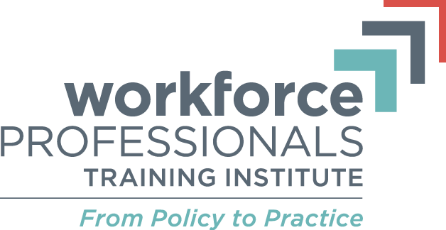
Last week, Mayor Eric Adams announced huge cuts to the New York City budget, including cuts to schools, libraries, sanitation, law enforcement, and many other essential services. Blaming the current migrant crisis for increased costs and a rapidly growing budget gap, Mayor Adams announced immediate cuts and hiring freezes, which will have a tremendously harmful impact on millions of New Yorkers, including those receiving services through the City’s workforce development system. These draconian budget cuts account for 5% of the total city budget, and an additional 10% may be cut in early 2024. WPTI is deeply concerned about these reductions in key services, which will have a ripple effect and create even greater barriers for unemployed and low-income individuals and families to achieve economic stability and mobility.
Cuts impacting the workforce system include:
- A $547 million reduction in the NYC Department of Education budget, with some cuts taking place immediately, including cuts to the city’s universal preschool program, as well as community schools (which provide wraparound services and support for students and families), and summer programming. Planned Pre-K and 3-K programs, scheduled to open in the Bronx and Staten Island, will be delayed by at least six months. Additionally, numerous non-classroom positions will be eliminated, and the Department has been unclear about whether a hiring slowdown will impact teaching positions. The $547 million cut is only the beginning, as additional budget reductions planned for 2024 may mean more than $2.1 billion in total cuts for New York City Schools.
- New York City’s libraries will have to cut Sunday service, with only one library citywide remaining open on Sundays. Furthermore, libraries will be forced to cut programming, services, materials, and maintenance.
- Additional cuts to city agencies providing human services and workforce development programs, including the Department of Youth and Community Development, Department of Social Services, and Department of Small Business Services (including the Workforce1 system).
For a full list of planned cuts, click here.
It is hard to overstate the pain these cuts will cause low-income New Yorkers, including those served by the city’s workforce development ecosystem. Cuts to education services - including early childhood education, summer programs, and more - not only leave the city’s children less equipped to develop their skills and talents and pursue their goals, but also remove a critical source of free childcare. For hundreds of thousands of New Yorkers - especially lower-wage workers - the ability to work is dependent on access to quality, free or affordable care for their children, and without these services, many parents and caregivers are not able to participate in the labor market. This will not only impact families’ ability to earn money, but also employers’ ability to hire and retain local talent, potentially leading to a dangerous economic ripple effect.
Cuts to libraries are also potentially devastating. For many New Yorkers, the local library is the most accessible access point for critical services. Individuals utilize the library not only to borrow books and gain knowledge, but to use the computer and secure services, including support with education and career development. Libraries provide assistance with resume preparation, offer service referrals, and help with a wide range of personal and professional needs. Reductions in library service will take away a critical lifeline for thousands of New York City families.
In this environment, the nonprofit organizations providing the city’s workforce development services will once again have to do more with less — something our community is asked to do, time and time again. More New Yorkers will likely turn to nonprofit community-based organizations for critical services, while these organizations are themselves facing budget cuts. In such an environment, it will be that much more important for the philanthropic community to step up and provide additional support, but this is not a long term solution. Pressure from the workforce development and human services sectors, as well as the broader public, will be essential to ensure that the City allocates its dollars to meet the needs of communities with the greatest needs, as well as to gain additional needed funds from the State and Federal government. And together, we will tell the city that now is not the time to cut services, when New Yorkers need them most.
In this challenging environment, Workforce Professionals Training Institute will be there to support you and keep you informed, alongside our fellow intermediaries. Together, we will work to ensure that all New Yorkers have access to real economic opportunity, and that you - our workforce community - have the tools, resources, and skills necessary to meet their needs.
